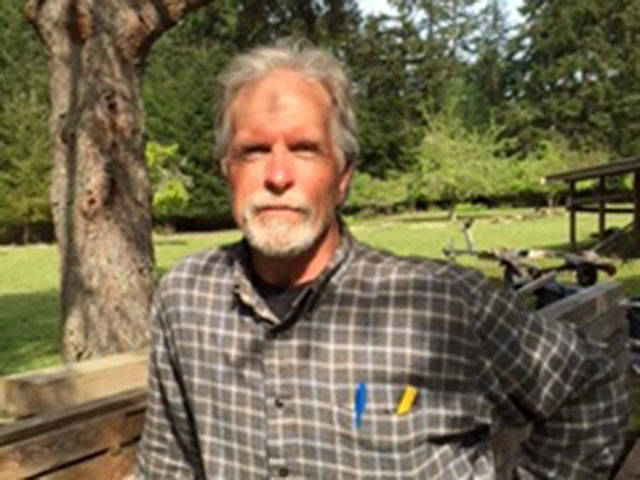“If there is a common welfare, a common good, it is forest ecosystems.”
— Joel Kuperberg, founding member, Vashon Forest Stewards.
Westerners are used to change: even ancient things like the buffalo and the passenger pigeons have disappeared. More recently, the Western grebe, that just 25 or 30 years ago wintered in the thousands in Quartermaster Harbor, has departed. Of human enterprises and institutions, Amazon and Microsoft arise in an eyeblink and transform Seattle, while others, like Jensen Motor Boat Company on Portage Bay, sink and are forgotten.
In this context, it is something of a challenge to arouse concern for the fate and fortunes of the Vashon Forest Stewards. For almost 20 years, this small non-profit, aiming to sustainably manage island forests and produce lumber from island trees, has thinned and replanted forest property, public and private, producing beams, slabs and finished wood from downed trees, and some profits to the owners, while leaving the biggest trees, and leaving the forest better and more diverse than before.
By June 16 the VFS must leave the property which has been its log yard and mill site. So far, we have not found a suitable alternative site.
I was one among the small group that started this organization. Our motivation and ambition were personal and passionate, but not private and not commercial, although we aimed to engage in commerce. The island needed an organization that would manage small forest acreages, but not in order to clear cut them, or high-grade for the biggest and best trees. As a carpenter, I wanted to enable the many card-carrying environmentalists on the island to use lumber and beams from their own and their neighbors’ forests to build and remodel their homes and purchase less and less from the diminishing old-growth forests of British Columbia. Turns out, this is a very hard thing to do.
Harder than we knew or could imagine at the beginning. Like getting married and having children, if we had known how hard it would be, we might not have attempted it.
In the beginning, too many long evening meetings brain-storming; too many miles bushwhacking to survey forests; after the County very generously leased an unused industrial property to us, too many days and weekends developing the property and building the mill shed. Many islanders contributed time and money. But some were suspicious of our aims and motives. It was an effort to educate and persuade islanders that we were not in this for private gain, and that it is possible, indeed, necessary to harvest some trees in order to improve island forests and make them more diverse in age and species.
Difficult, not especially profitable, but, like marriage and child-rearing, a very good thing and worth the effort. And necessary. But no one is waiting in the wings to replace VFS.
Economically, it is always a struggle to succeed, but ecologically, VFS has succeeded beyond our wildest dreams. Consider that we have carried out ecological thinnings in Agren and Paradise Ridge Parks, the School District Forest and assisted King County in Island Center Forest, as well as hundreds of private forests. Our lumber is on display throughout the island, in the high school, in VCA, in numerous Vashon businesses and in hundreds of private homes.
This is a manner of management and use of forests which is consistent with the science of forests, as the treatment of national forests in the U.S. and provincial forests in Canada is not. VFS, though small and struggling, is not alone; there are many other efforts like it across the country and around the world. If the forests of the Western hemisphere, with climate change, are not to die away to desiccated remnants as in the Near East or be reduced to monoculture tree farms as in much of Europe, the management of national forests must adopt some of the principles that have inspired the VFS and others.
There is a principle and a science here which deserves and needs support. A way of preserving and using forests that is part of a covenant with the past (honoring the evolution of Mother Earth) and with the future of the Earth and with our descendants. Do you or your neighbors have a plot of land that might fit the Forest Stewards needs? Too many people have worked too hard, and so many people have gained so much for this organization to disappear from the island. Won’t you help?
— Jack Stewart, an island resident for 24 years. Jack owes his devotion to trees to the Hebrew prophets, William Blake, and his father.



